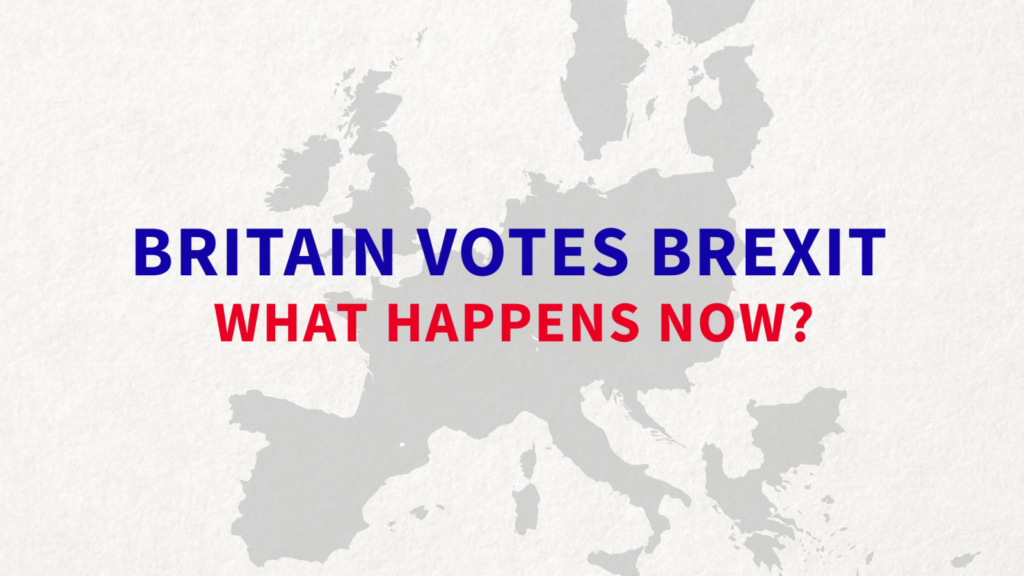
- Products
- Solutions
- Learn
- Partner
- Try Now
June 23rd, 2016 is now etched in the annals of history as the day the British withdrew from the European Union, or Brexit. A pandemonium of sorts ensued as the news spread far and wide and wrecked financial havoc for individuals and companies overnight. With this new found information many people and organizations are consumed with one thought… ‘What now?’ and re-evaluating planned investments for the remainder of this year.
Brexit will require businesses to put contingency plans into action – or to start scrambling to make those plans as many have adopted a wait and see approach. The uncertainty in the outcome of the upcoming US presidential election has added another layer of complexity to the volatility of the word economy.
For service providers, this has been a bad year. Businesses that were already less confident about growth this year due to slowing economies said that this has added fuel to the fire. It could take months for this to settle down and many small and medium businesses have already started re-tracing their steps from necessary risk protections to distribution and licensing agreements, everything needs to be reviewed again.
THIS is not all- Brexit’s impact will be both short and long term. Currency and stock market volatility, combined with political turmoil in the United states and low rates there will be near term implications.
Changing trade tariffs, customs duties on UK imports and goods, and increased UK deregulation will be avenues that need to be analyzed long term.
Immediate Impact . . .
If you run a British company that exports a lot to Europe, or manage a European bank with thousands of employees in London, nothing much changed with the results. Britain is a member of the European Union today, and will be one tomorrow. With Article 50 being triggered the UK will have 2 years to negotiate its withdrawal. 2018 will witness severed ties and the new policies come to effect. As of now the EU law still stands in the UK but Britain has lost its right to be a part of the decision making.
The immediate effects of “Brexit” will flow through financial markets. The real-time verdict by millions of people can be seen as as they put quite a chunk of money at stake on the worth of something over the indefinite future. Economic shifts are a slow and steady affair, financial shifts however come into effect with the blink of an eye. It happened overnight as the results got out, the British stock market declined by 3.2 percent the very same day, which isn’t too much of a concern for the corporates as their profits won’t be hampered by much in the near future.
The problem however starts getting bigger once you peek into the bond and currency markets. The 7.6 percent drop in the British pound against the dollar is a seismic move — major currency pairs just don’t do that. This is move is 21 times the average daily move in the dollar-pound exchange rate of 0.35 percent, which has been the same since 2012.
Inflation for the British consumers is on the horizon with a rally in the British government bonds (and consequently lower interest rates), as imported goods become more expensive.
As the months pass, the economic consequences of Brexit become less about financial market disruptions and more about real economic activity. Hiring people or making capital investments will be a choice many businesses will have to face in Britain.
Uncertainty lurks in the future as the question hangs in the air, what will a post -E.U. Britain actually look like? After invoking Article 50 of the Lisbon Treaty, which isn’t exactly a detailed road map for extricating a country from a complex set of interconnections affecting every facet of economic life, with just a handful of 261 words. Years will be spent in negotiations to come to agreeable terms with.
Britain will get through the immediate financial turbulence and a possible recession just fine. The question for its future is which of two options British leaders now choose. They can maintain the status quo and remain a major international business center (while ignoring the impulse that led voters to choose “leave” in the first place). Or they can become a smaller, more isolated island that is a less important cog in the global economy — but at least one that honors its voters’ wishes.
How does On- Demand space get hit?
On demand economy and how it spins depends majorly on the deal that the UK now negotiates with the rest of the EU. In short term there may be a decline in investment in Britain, a boost in exports will be seen caused by the falling pound.
Long term, a great deal of investment is forecasted because of the UK’s access to the single market of over 500 million people across the EU and the European Free Trade Association (EFTA). Many countries will be after a slice of that cake, and so the deal the UK does with the EU is all important.
That is why many believe the UK will have to stay part of the single market, and no country has managed to do that without allowing for free immigration from the rest of the EU. Functionalities in the on demand space won’t be under the hammer as UK will be lush with opportunities and will serve as a thriving ground for start ups thus in turn leading to more on demand activity. The American market will be strong with the dollar at a high. The on demand space might just ride the Brexit wave and make the most of it.
On a side note.. the meme world had a field day.
Subscribe to stay ahead with the latest updates and entrepreneurial insights!

Subscribe to our newsletter
Get access to the latest industry & product insights.























